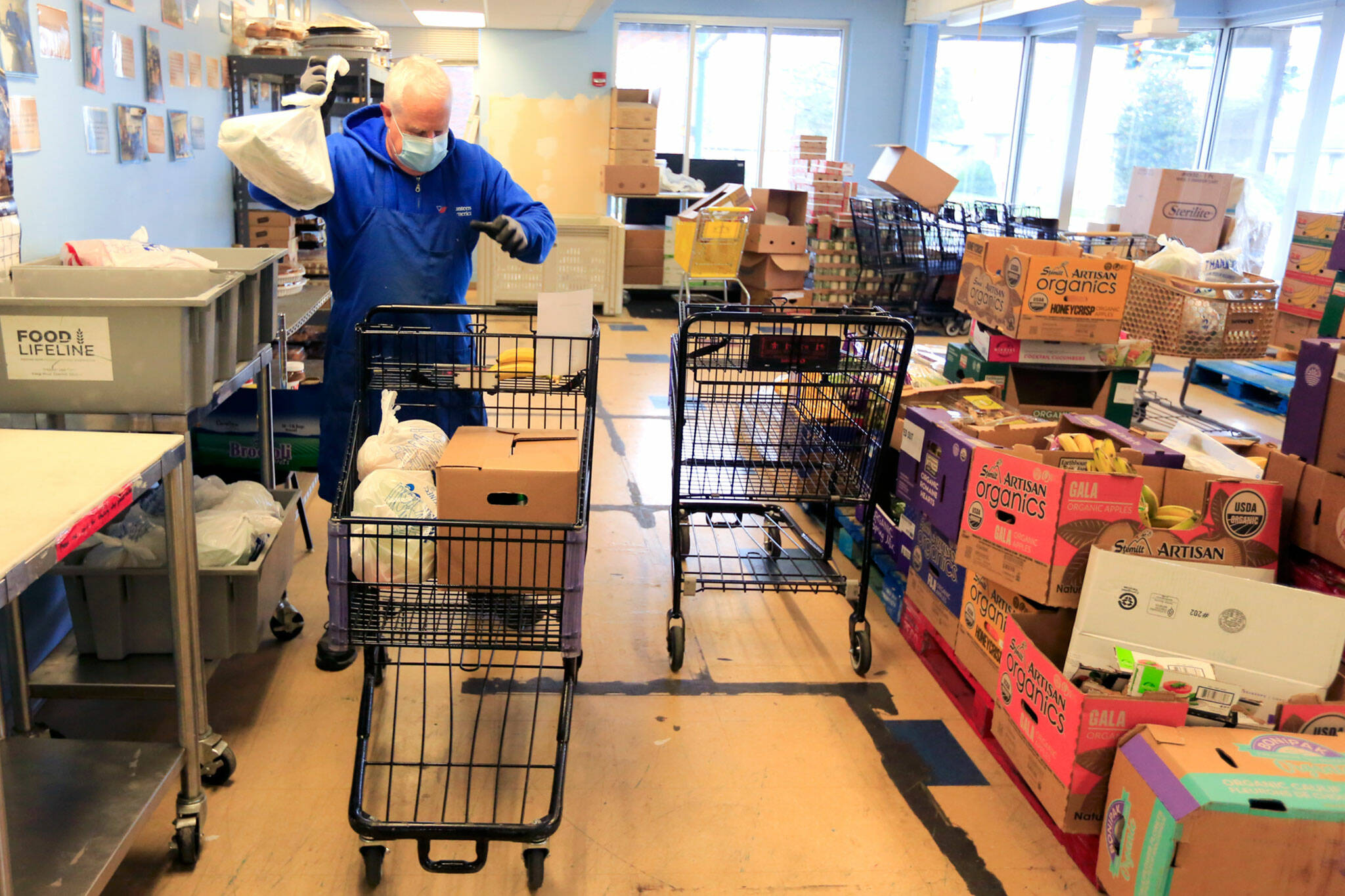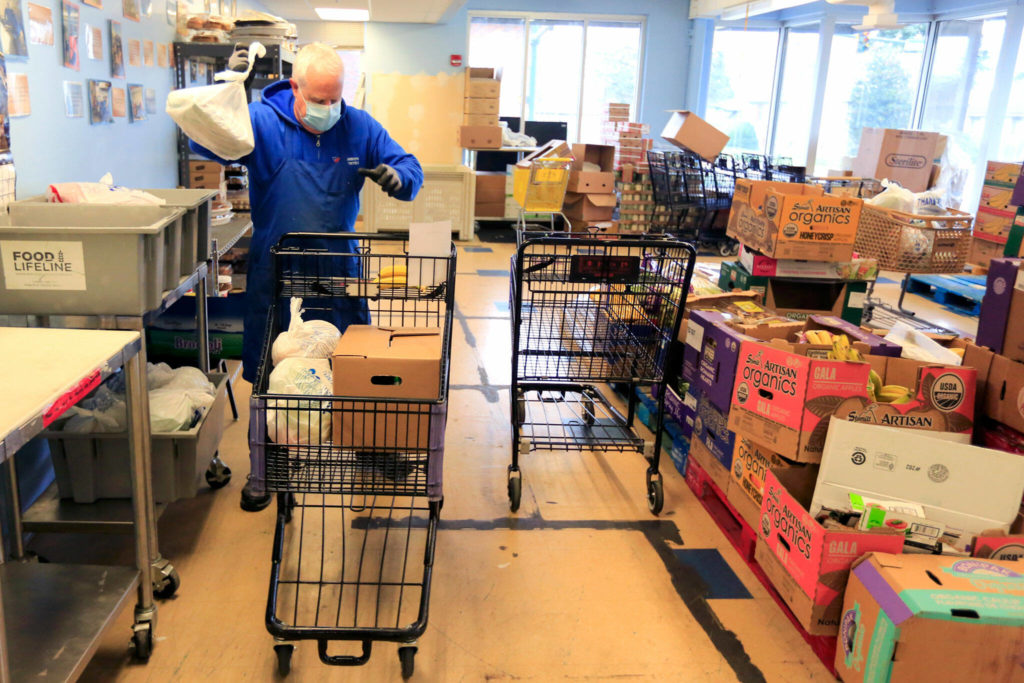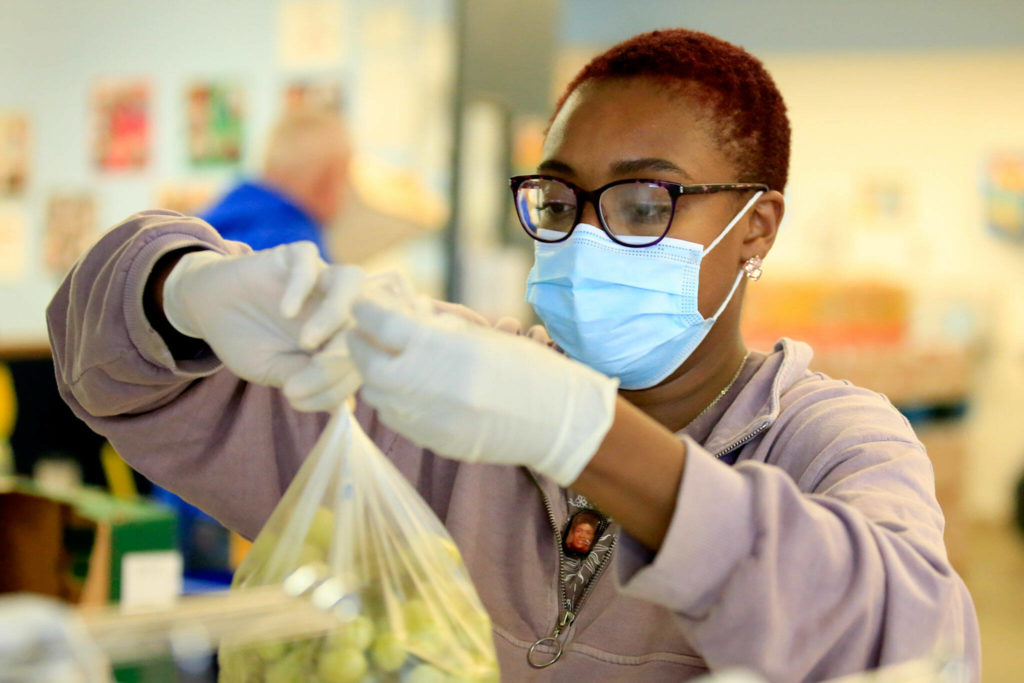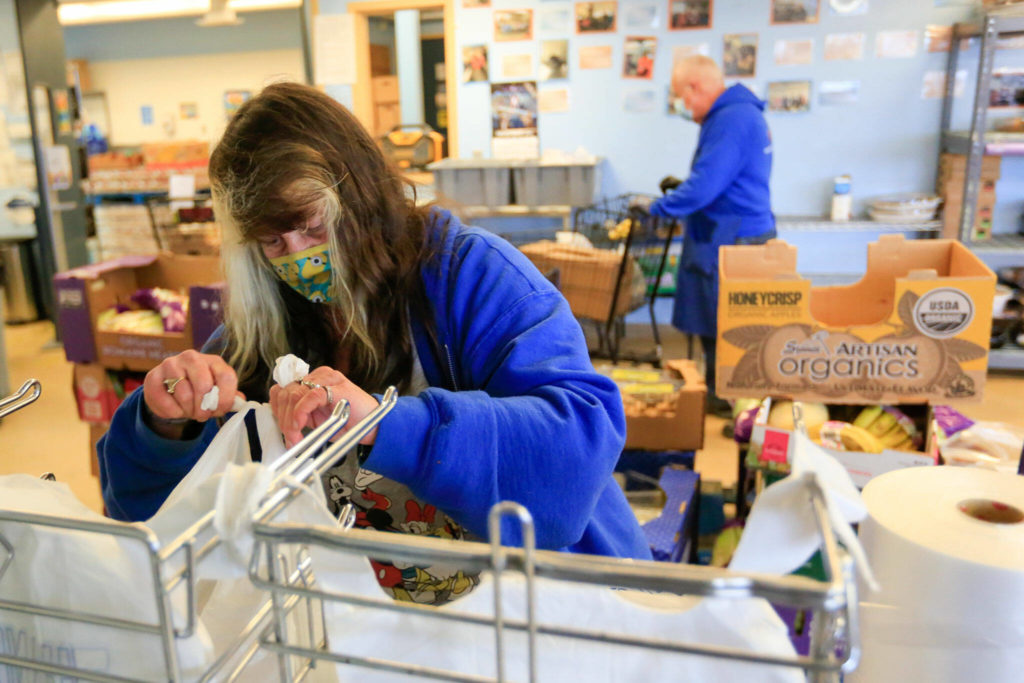EVERETT — Two weeks before Volunteers of America hosted its first drive-through food pantry in spring 2020, many of its clients were wearing suits to the office. The need for food assistance doubled, seemingly overnight.
Recently, Volunteers of America opened a massive food distribution center in Arlington to meet the growing need for food assistance. The nonprofit feeds as many as 5,000 people every month in Snohomish County — more than twice the number it did before the pandemic began.
“What COVID did is it exposed all of the gaps,” said Chris Hatch, senior director of Hunger Prevention Services at Volunteers of America Western Washington.
The nonprofit probably outgrew its Everett warehouse 10 years ago, Hatch said, but the community’s immediate and massive need for food brought on by the pandemic made that fact impossible to ignore. Volunteers of America went from distributing 3.7 million pounds of food the year before the virus took hold to nearly 8 million pounds the first year of the pandemic.
When it became clear the nonprofit’s small Everett warehouse wouldn’t cut it, Hatch rented an old Haggen grocery store in Arlington. Meanwhile, Hatch said, the Washington State Department of Agriculture created extra food reserves across the state.
“Having that extra capacity in a time of need allowed us to help,” Hatch said. “It wasn’t just supporting Snohomish County, it was supporting Washington state.”
VOA has since moved into its new Arlington site, which at more than 57,000-square-feet, is about seven times larger than the original Everett site.
COVID, Hatch said, put a microscope on systemic shortcomings.
“There needed to be more funding to help every single one of us increase our capacity and buy equipment, buy forklifts, buy refrigerators and freezers that were desperately needed,” Hatch said.
Volunteers of America Chief Development Officer Kristi Myers said food assistance was by far the most pressing need when the pandemic began.
“People were losing jobs,” Myers said. “There were people for the first time needing food assistance, who had never been to a food bank. It was a whole new clientele of people needing support.”
The nonprofit turned its drive-through food pantries into one-stop shops for people to access other aid, including vaccines and rental assistance. Roughly 800 cars attended two of the nonprofit’s November drive-thrus.
Chief Operating Officer Brian Smith said some people were adamant they would never step foot into a food bank, but were willing to accept help through events like the drive-through.
“It allowed a lot more individuals to be able to access those resources,” Smith said.
Since March 2020, VOA has beefed up its other social service programs and hired about 100 additional staffers. Many are frontline workers, who speak directly with people seeking help.
The nonprofit has distributed $65 million in rental assistance and opened two more community resource centers, where people can go for nearly any type of help. It’s in the process of re-opening the Carl Gipson Center for seniors in Everett, establishing a permanent food pantry on Casino Road and establishing an Early Childhood Education and Assistance Program in Monroe.
Katie Hayes: katie.hayes@heraldnet.com; Twitter: @misskatiehayes.
Katie Hayes is a Report for America corps member and writes about issues that affect the working class for The Daily Herald. Readers can support this work through a tax-deductible contribution to The Daily Herald’s Report for America fund.
Talk to us
> Give us your news tips.
> Send us a letter to the editor.
> More Herald contact information.




























